Carl Rogers Biography, Theories and Books: The Founder of Humanistic Psychology
Carl Rogers was an American psychologist who is best known for developing client-centered therapy, and is also among the founders of what is referred to as Humanistic Psychology.
A Short & Sharp Intro to Rogers Most Famous Theory of Personality and Experience
Contrary to
Freud, who suggested that much of personality is based on
unconscious forces that the person has no awareness of or control
over, Rogers proposed that personality is built of conscious
decisions and choices based on an individual's perception of his
experiences.
In this way he also claimed that individuals
are not victims of their childhood. Yes, childhood experiences are
important and can affect the way a person sees or interprets the
world around him, but current feelings and emotions also play a
powerful role.
So Basically Rogers Said:
'Past Experiences Can
Influence Present Personality, BUT They Don't Have to
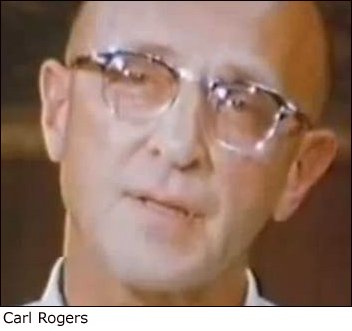 At least not entirely!
At least not entirely!
Carl Rogers' theory states that all
personality is based on "experiences", and current experiences have
the ability to override the past and bring about change ... if the
individual chooses to.
By some current philosophies, this
idea can be likened to "letting go of the past".
- "Experience is, for me, the highest authority. The
touchstone of validity is my own experience. No other person's
ideas, and none of my own ideas, are as authoritative as my
experience. It is to experience that I must return again and
again, to discover a closer approximation to truth as it is in
the process of becoming me." ~ Carl Rogers quote
Carl Roger's Provocative and Ground-Breaking Insight:
'Your Life
is Your Responsibility - Experience Is a Choice'
Rogers' idea that experience - and one's interpretation of
experience - is what forms personality, also carries the assumption
that a change in experience - or a change in the perception of
experience - can bring about a change in personality.
Furthermore, he stated that human beings have the ability and
responsibility to improve themselves and work to become who they
want to be (what he calls 'ideal self').
This optimistic
view of the world was quite a change in the popular thinking of the
time.
Up to this point, many psychologists had focused on
the problems, looking at dysfunctional families or disturbed
children.
So, Rogers' claim that people can choose to be
healthy, forward thinking beings, was met with much criticism -
which is not surprising!
From his observations, Carl Rogers concluded
that emotional and psychological problems were the exception, not
the rule, and in most cases these issues could be overcome.
Carl Rogers Sowed the Seed for Today's Therapies: Stop Being a Victim of Your Past!
This changed the world of psychology and psychotherapy, and
set the trend for a lot of current counselling treatments.
Today, it is common for someone to visit a psychologist
who will help them deal with past experiences so that they can
move onto a healthy future.
But, back when Rogers
first introduced this idea, it was revolutionary. And, his
optimistic approach gave hope to a lot of people who believed
themselves to be eternal victims of their past.
What You'll Read about in This Article
This is a very extensive, in-dept article about Carl Rogers and this theories and work and here you'll get to:
- Read the Rogers biography
- Go to the section of
Rogers' theoretical contributions
- The
idea of an experiential world
- Self-concept
and Unconditional Positive Regard
- Actualization and the Fully Functioning Person
- Client-centered Therapy
- Get Short resumes
of books by Carl Rogers
The Carl Rogers Biography
Carl Rogers was born on
January 8, 1902 in Oak Park, Illinois, a suburb of Chicago.
He was the fourth of six children and was raised in a
very loving, yet strict home.
Raised in Love but Imprisoned by Beliefs
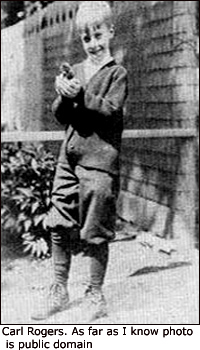 His parents were devout
protestants and imposed very rigid rules on their children,
such as no dancing, cards, movies, smoking, or drinking.
His parents were devout
protestants and imposed very rigid rules on their children,
such as no dancing, cards, movies, smoking, or drinking.
While Carl Rogers does not argue that these rules were for the
benefit of his health and morality, he felt that he was only
given someone else's view of the world.
He was not
allowed to think for himself as it was presumed that he would
adopt his parents' beliefs and perceptions.
It is
important to note that Rogers did not take objection to his
parents' belief that drinking was wrong (the right or wrong of
it was irrelevant) - the problem came in the fact that they
assumed their son would automatically believe the
same.
He was expected to internalize the conclusions
of his parents.
Rogers' belief that his world view was
being imposed upon him was a great impetus for his later
theory of personality development.
Childhood Loneliness Paved the Way for Getting Close to People - Thus the Interest for Therapy
Carl Rogers was a solitary child and spent many hours
alone, usually reading.
He later realized how much
this solitude affected his interest in psychotherapy as this
Carl Rogers quote illustrates:
- "As I look back, I realize that my interest in interviewing
and in therapy certainly grew out of my early loneliness. Here
was a socially approved way of getting really close to
individuals and thus filling some of the hunger I had
undoubtedly felt" (Rogers, 1980, p.34).
Rogers Started out with Science Studies
When Carl Rogers was 12, his
family moved to a farm in Glen Ellen, Illinois, and it was
here that Rogers became interested in science.
He
attended the University of Wisconsin to pursue a career in
agriculture.
... But Changed to History
While
he was there, he began going to religious "revival" meetings,
and this experience together with his religious upbringing,
inspired him to change his major to history, with the plans to
attended seminary after graduation.
Finally Breaking Free to Think His Own Thoughts
In 1922, Carl Rogers was chosen
to spend six weeks in China at the International Christian
Youth Conference.
This time away allowed him to break
free from his parent's control, and he would later recall that
he was able to think his own thoughts and decide what he
believed as an individual for the first time in his life.
After graduation from the University of Wisconsin, he
married his wife and the couple went on to have two children.
His Professional Life and Powerful Legacy
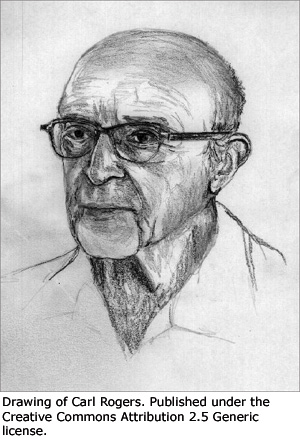 In
1924, Carl Rogers enrolled in the Union Theological Seminary in New
York City and also began taking psychology courses at the
Teachers College of Columbia University.
In
1924, Carl Rogers enrolled in the Union Theological Seminary in New
York City and also began taking psychology courses at the
Teachers College of Columbia University.
Two years
later, he transferred full-time to Columbia after deciding not
to pursue a career in the ministry.
In 1931 he earned
his Ph.D from Columbia and throughout his career he held
professional positions at several institutions including Ohio
State University, the University of Chicago, and the
University of Wisconsin.
During this time, he created
his theory of personality development, pioneered
client-centered therapy, and authored several publications.
In 1946, he was elected president of the American
Psychological Association, and in 1987, he was nominated for a
Nobel Peace Prize.
Carl Rogers died on February 4,
1987, but he left behind a legacy that forever changed the
fields of parenting and psychology.
Carl Rogers' Theoretical Contributions
Carl Rogers is among those
professionals credited for developing
humanistic psychology
and laid the foundation upon which many others would build.
He was one of Freud's biggest critics and preferred to
look at human beings in a more positive light - rather than
the negative and hopeless view that Freudian principles often
imply.
Some of Rogers' most prominent contributions
include:
- The idea of an Experiential World
- Self-concept and Unconditional Positive Regard
- Actualization and the Fully Functioning Person
- Client-Centered Therapy
The Experiential World
- Reality Is Completely Subjective
A person's "reality" is based on how he perceives his
environment or interprets his experiences.
It is very
subjective and may not match up, or coincide with, objective
reality.
In other words, two people can experience the
exact same situation but the individual "realities" could be
different.
There Are Two Sides to Every Story (or Reality)
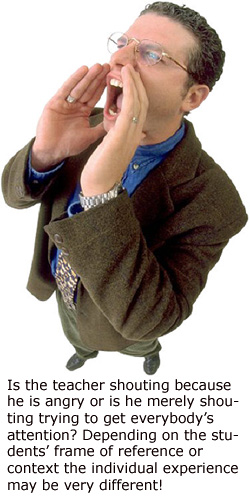 I am sure you have heard the expression, "there are two sides
to every story"!
I am sure you have heard the expression, "there are two sides
to every story"!
Each
individual has their own frame of reference or context and
will experience the situation differently depending on their
perception.
For example, a teacher may raise his voice
to be heard over a noisy classroom of children. His goal is to
get everyone to sit quietly and pay attention.
Now,
let's say a child grew up in a home where his dad yelled -
or raised his voice - every time he expressed his displeasure.
If the child disobeyed or failed to meet
expectations, he could expect his dad to begin shouting a
reprimand.
So, when the teacher raises the volume of
his voice
to be heard over the noisy students, the child's
interpretation of the situation (based on his experiences) is
that the teacher is angry and it is his fault.
Another student may not pick up a sense of
anger at all, but realize that the teacher is just trying to
get everyone's attention and cannot do so when speaking at a
normal volume because the classroom is too noisy.
If
these two students had to describe their day, the story would
be very different.
So, Carl Rogers was interested in how
people reacted to the stimuli and experiences around them.
The Experiential Layers of the Past Do not Have to Override Those of the Now
And, Carl Rogers also believed that a
person's perceptions can change with time and additional
experiences. The experiential world includes present
experiences, but Rogers suggested that past experiences can
also guide or influence a person's perception of current
experiences.
For example, as an infant grows, he is
exposed to more and more stimuli. Therefore, his experiential
world is broadened and his behavior is going to change.
His past experiences have governed the way he interprets
the new experiences, but it is the new experiences that are
most important.
Rogers argues that as a child grows
and matures, he will develop the ability to interpret
experiences consciously - that is to decide how much his past
will affect his present.
A teenager would have the
capability to look at the situation in the classroom and
realize that the teacher's "yelling" was not at all the same
as his mother's "yelling".
He could then consciously
decide that the current situation did not fit with his context
or frame of reference - in other words, not all yelling means
anger, and the teacher's raised voice is not an expression of
disapproval or a reflection of the child's self-worth.
According to Rogers, the experiential field makes up a
person's view of the world and is extremely important when it
comes to personality development and change.
Self-Concept and the Unconditional Positive Regard
Carl
Rogers believed that as a child develops a broader
experiential field (resulting from his experiences and
interaction with others and his environment) a sense of "self"
begins to emerge.
This is the part defined by the
words "I" or "me" and is his perception of who he really is as
an individual.
Rogers called this aspect "self-concept"
and it includes the child's inner picture of who he is, who he
wants to be, and who he thinks he should be.
Self-concept is influenced by the evaluation of others,
childhood experiences, and the interpretation of those
experiences (or perspective).
The 3 Components of the Self-Concept
According to Carl Rogers, self-concept has three components:
- Self-worth - "I feel good about myself":
This is how or what a child feels about himself. Feelings of self-worth are developed from infancy and are formed most strongly through interaction between the child and his mother. The relationships with the father and other main care providers are also important. - Self-image - "I think I am
a good person":
This is how a child sees himself. This also includes physical qualities and emphasizes the importance of body image on the formation of personality.
- Ideal-self - "I would like to be a good person":
This is who the child would like to be, and includes his dreams, goals, and valued personality traits. It is important to note that many aspects of the ideal-self are not static in that they change as the child grows. The ideal-self for a four year old will be different than the ideal-self for a 16 year old.
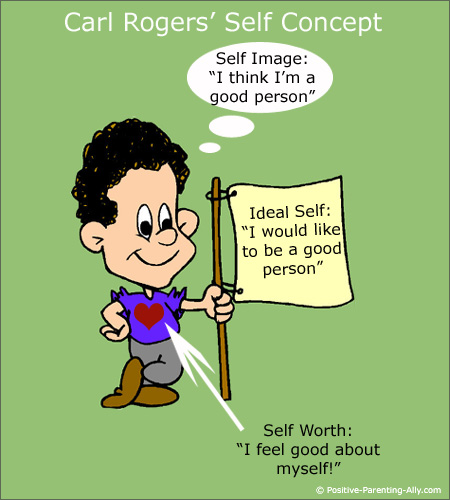
The closer the self-image and ideal-self are to each other the
more self-worth a child will have.
If his experience
does not fit with his self-image then he is in what Rogers
call a state of "incongruence".
We will discuss that a
little more shortly. But, first, we need to look at the
connection between self-worth and Positive Regard.
Positive Regard
Basically, Carl Rogers said that everyone
has a need for what he calls
Positive Regard, or the
acceptance, love, and approval from others. He also believed
that self-worth and positive regard are closely linked.
How a child thinks and feels about himself and how he sees
himself will determine the likelihood of him achieving his
ideal-self, or making his goals and dreams a reality.
A person with high self-worth will have confidence, a positive
self-image, and will be able to deal with challenges without
becoming discouraged.
On the other hand, a person with
low self-worth will be defensive, have difficulty in
relationships, and will have a hard time dealing with painful
or challenging experiences.
In other words, one is an
optimist while the other is a pessimist.
Rogers
believed that this self-worth is developed most strongly in
childhood and is derived from positive regard.
But, he
outlines the difference between "conditional" and "unconditional"
positive regard, and it is a very important distinction in the
formation of self-concept.
Unconditional Positive
Regard, is when a parent gives love, acceptance, and
approval to a child for who he is, not for what he does.
Love is not withdrawn when a child makes a mistake or does
something wrong. As a result, the child feels free to try new
things, even if it means making mistakes.
On the other
hand,
Conditional Positive Regard, is when a parent's
approval is dependent on the child's behavior. He is not
accepted for who he is but for what he does.
Disobedience brings disapproval from others, and eventually
the child will begin to develop disapproval of himself.
As a result, the child feels like he has to constantly
work to seek approval from others rather than trying new
things and working toward his ideal-self.
So, a child
who received unconditional positive regard will tend have a
high self-worth, while a child who received conditional
positive regard will tend have a low self-worth.
Rogers
goes on to say that the feedback we get from others - their
approval or disapproval - not only influences our self-worth,
but also our entire self-concept:
A child will
internalize the positive regard and this will affect how he
thinks about himself, how he sees himself, and how confident
he is in his ability to achieve his ideal-self.
Now,
let's return to the discussion about congruence. When a
person's reality lines up with his self-concept, he is said to
be in a state of congruence. In order to achieve actualization
(full potential), congruence is necessary.
However,
when a person's self-concept does not match his reality,
incongruence results.
The Self-Concept Decides the Experiential Quality
According to Carl Rogers, individuals want to think, feel, and experience in ways that
are consistent with their self-concept, or with the image they
have of their ideal-self.
The closer the self-image is to the
ideal-self, the higher the level of self-worth will be.
Everybody Strives to Be in Congruence ...
Irrelevant of
Whether the Self-Concept Is Positive or Negative
By nature, individuals want to be in a state
of congruence, so when there is a discrepancy, anxiety is
created because the self-concept is threatened.
If our
Self-Concept Is Threatened ...
We Lie to and Deceive Ourselves
to Get Peace
Rogers says that anxiety is dealt with
using defense mechanisms so that the individual can convince
himself that the inconsistency is not real.
For example,
if a person believes himself to be very honest yet is
regularly lying to his parents he may justify this by saying
that when he tells the truth his parents always get angry and
yell at him.
Therefore, it is alright to lie because
his parents are unreasonable and cannot handle the truth. This
way, his self-concept is maintained and the threat is
neutralized
Parents often justify "lying" to their
children by claiming that they are protecting them or by
believing that they are not old enough - or mature enough - to
handle the truth.
This discrepancy is not seen as a
threat to self-concept because the lie is attributed to a love
for their children and a desire to do what is best for them.
Rogers: "Conditional Parenting Promotes Incongruence"
Carl
Rogers believed that parents promote incongruence when
they give conditional love.
These children grow up to
become adults that "distort" their experiences or alter their
perceptions in order to feel loved and accepted.
Actualization and the Fully Functioning Person
The Desire for Self Acualization Is Our Fuel
- "The organism has one basic tendency and striving - to actualize, maintain, and enhance the experiencing organism" (Rogers, 1951, p. 487)
Carl
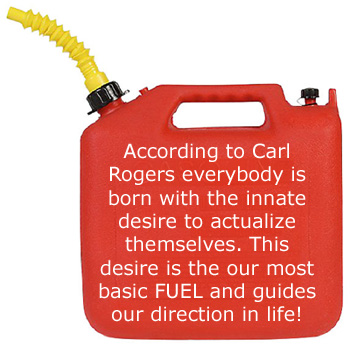 Rogers proposed that everyone is born with an innate tendency
to "actualize" - that means to develop all your abilities and
potential and to become all you were meant to be - or to
achieve your ideal-self.
Rogers proposed that everyone is born with an innate tendency
to "actualize" - that means to develop all your abilities and
potential and to become all you were meant to be - or to
achieve your ideal-self.
This includes everything from
the most basic biological needs such as food and water to the
most complex psychological needs such love and acceptance.
According to Rogers, everyone is born with this ability,
but one's experiences and self-concept will determine how this
ability is developed.
And, since everyone has unique
potentials, skills, talents, and abilities, personality
development is very individualized.
For a young child,
actualization is based more on physical maturation or
development.
For example, learning to walk is part of the
biological development but is also necessary for the child to
move toward actualization.
When a toddler first begins
trying to walk, he will fall down several times, sometimes
even crying because of discouragement or injury.
The Desire for Self Actualization Is so Strong that We Will Climb Mountains for It
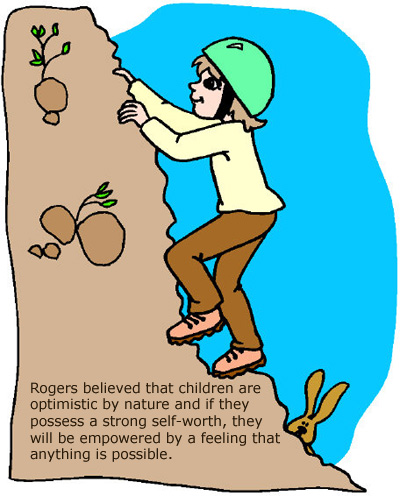 However, Rogers claimed that the tendency to actualize is so
strong that the child will continue to pursue his goal despite
setbacks.
However, Rogers claimed that the tendency to actualize is so
strong that the child will continue to pursue his goal despite
setbacks.
In other words, the desire to move forward
or to progress is stronger than the desire to quit.
Carl Rogers believed that this was due to the fact that children are
optimistic by nature and - if they receive unconditional
positive regard and have a strong self-worth - they know that
anything is possible.
Mistakes are not signs of
failure and goals are not abandoned when success is not
immediate.
As a child becomes more mature, the
actualizing process becomes less biological and more
psychological.
Remember, for a person to move toward
self-actualization, congruence and a strong self-worth are
necessary.
Parents can influence how effectively their
child develops congruence and self-worth - and ultimately
actualization - by giving unconditional positive regard.
Rogers is also very clear in stating that a child who did
not receive unconditional positive regard can still achieve a
state of actualization if his experiences change or if he
makes a conscious decision to adjust his world view.
Self Actualization Is Never Reached as We Will Always Be Actualizing
He also described human nature as "ever-changing".
Therefore, people never really achieve self-actualization but
are continually in a state of "actualizing".
We are always
changing the image of our ideal-self, so we are constantly
moving forward toward new possibilities.
Falsely
believing that there is nothing else to achieve will lead to
stagnation, inflexibility, and lack of openness in
relationships.
Self-actualization is "direction not a
destination" (Rogers, On Becoming a Person, 1961).
The
person who is able to self-actualize is called a fully
functioning person.
The fully functioning
person has certain qualities and characteristics that allow
him to keep growing and changing:
- Open to new experiences.
All experiences are accepted, even the negative ones. Feelings
are not denied or buried but are worked through without the
use of defence mechanisms.
- Living in the moment.
Life is lived to the fullest and current experiences are
accepted without preconceptions or past influences.
- Trust. Feelings, instincts, and reactions are trusted
rather than being influenced by the judgements or perceptions
of others. World view is based on experience rather than being
imposed upon the individual by outside sources.
- Creativity. Creative thinking and the willingness to
take some risks lead to adaptive and flexible behavior. The
individual can adjust to change and embrace new experiences.
- Sense of freedom and fulfillment. Self-actualizing people are happy and satisfied. They feel a sense of power and know that their lives are controlled by their own actions rather than past events or the influences of others. They behave the way they want to, not the way others think they should (although these can be one in the same).
Since
Rogers promoted individuality, he did stress that these five
characteristics seem to be present in all fully functioning
people; however, the way these qualities are expressed and the
experiences that are connected with them can be very different
depending on the person.
For example, two people can
be open to new experiences yet have different personalities.
Client-Centred Therapy
To Help the Client We Must Understand the Client's Experiences
- "It is that the
individual has within him or herself vast resources for
self-understanding, for altering the self-concept basic
attitudes, and his or her self-directed behavior - and that
these resources can be tapped if only a definable climate of
facilitative psychological attitudes can be provided"
(Carl Rogers quote from 'The Foundations of the Person-Centered Approach', 1979, p. 1).
For Rogers, was about the
individual's experiences and how he perceived and interpreted
these experiences.
Therefore, when it comes to therapy,
the belief is that the client knows himself better than any therapist ever could.
Carl Rogers believed that the therapist must see the client's
world from the client's point of view (or his reality) in
order to be helpful.
Since experiences are subjective,
the only way to assess personality and bring any change is to
study and understand the individual's experiential field.
- "It is the client who knows what hurts, what directions
to go, what problems are crucial, what experiences have been
deeply buried"
(Carl Rogers quote from 'On Becoming a Person', 1961).
In the video below you will see Carl Rogers analyze and
talk about a session he has just had with a client called
Gloria.
As you will see Rogers is clearly moved by the
session and feels that not only Gloria but also himself have
been enriched by this honest and powerful encounter:
The Therapist Must Show Unconditional Positive Regard - Be Without Judgement and Biases
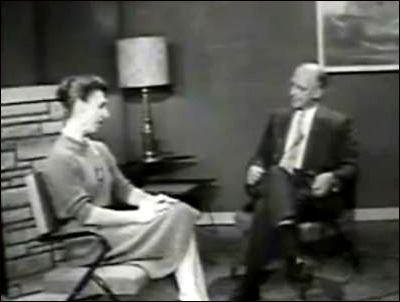 Remember, Rogers suggested that everyone has the ability
to change and improve their own personality despite past
experiences or influences.
Remember, Rogers suggested that everyone has the ability
to change and improve their own personality despite past
experiences or influences.
So, in client-centered
therapy, it is the job of the therapist to facilitate change
or guide the client in the right direction.
Clients are never
told what they should do, but are allowed to come to their own
conclusions and solutions.
Of course, true to Rogers'
theories, the main key to success is unconditional positive
regard - the therapist must give it and the client must feel
free to explore their inner personality and express their
feelings without fear of judgement.
Clients are
accepted for who they are and all ideas for change are
considered valid.
The only assumption made on the part of the
therapist is the understanding that every client is valuable,
possesses worth, and has the capability to realize his
ideal-self.
Below you will find an old video from
1960. In this video of Carl Rogers you are
first presented with an excerpt from a
counseling session and you hear about the
client's positive experience of a therapist
using the unconditional positive regard.
The Client Must Take Responsibility for
His Own Life
... and His Experiences
It is the
responsibility of the client - not the therapist - to bring
behavior changes, alter world views and perceptions, and to
develop a self-concept based on a high level of self-worth.
In other words, only the client can change his own future
because he is in control of his own happiness and fulfillment.
Rogers called this method of therapy
client-centered
therapy or non-directive therapy. And, he claimed that this
approach worked because it did not force the person to fit
into a predetermined theory or structure.
He believed
that previous methods, such as those presented by Freud or
Adler, were limited because they tried to push the client to
fit a pattern based on the therapist's idea of personality
development.
We can see the prominence of
client-centered therapy in today's society, which suggests its
level of success.
Rogers' Theories Allow for Children to Recover from Poor Parenting
While experts such as
Freud and
Watson put psychological and personality
development completely in the hands of the parents, Rogers
strove for a "happy medium".
According to
behaviorists, everything "wrong" with a child is the fault of
the parent.
Rogers, however, states that childhood
experiences are extremely important and a healthy self-concept
is the result of parenting that provides unconditional
positive regard.
So, parenting is important, but bad
parenting is not a death sentence for the child.
Every
human being has a need for unconditional positive regard. If a
child doesn't receive it from a parent, his personality
development will be hindered; but, parents are not the only
source of love, acceptance, and approval.
Rogers
argues that if a child were to receive unconditional positive
regard from someone else, he could then overcome his negative
self-image and begin to develop a more positive self-concept.
Ideally according to Rogers,
unconditional parenting is the best
environment for the child.
But, unlike Freud and Watson,
Rogers says that childhood can have a great impact on
adulthood but negative childhood experiences do not have to
result in negative adult personality.
In this way,
Rogers believed that therapy should help the individual focus
on how he can change himself so that he regains control of his
own future and happiness.
Experts' Criticism of Rogers: Too Rosy and Too Subjective
While this is the basis for a lot of "self-help"
philosophies, some experts believe that Rogers was too "rosy",
that his over-cheery attitude caused him to sometimes miss
deeper problems that needed more clinical intervention.
He has also received some criticism for his "self-reporting"
policy, with some people arguing that data coming from a
client who is in need of therapy can often be a little "fuzzy"
or skewed.
For example, a client can adamantly say that he is
happy, even if he is not.
And if he can convince the
therapist that it is true, then is he really getting the help
he needs?
Famous Books By Carl Rogers
Client-Centred Therapy (1951)
A Short Resume of 'Client-Centred Therapy'
Although this book is geared toward those who
are interested in becoming a therapist or counsellor, it is
also very beneficial for the average reader.
It is
well-written, informative, and easy to read.
And, it
clearly outlines the concept of client-centered therapy and
how it can be applied and practiced.
Rogers talks
about the process of developing this method and his
philosophies behind it, and also shares some case histories
and examples of how client-centered therapy has been
successful.
Rogers also discusses what he calls the "core
conditions" that a therapist must possess including such
things as unconditional positive regard, empathy, and
genuineness.
But, since he also claims that all these
characteristics should be present in the "fully functioning
person", this book will also be of interest to those not
pursuing a career in therapy.
It includes advice that
parents can apply to their relationships with their children
as well the interactions with other people in their lives.
On Becoming a Person (1961)
A Short Resume of 'On Becoming a Person'
If you have any interest in
humanistic psychology this is the book to read.
It is
a thorough, yet easy to understand overview of Rogers' basic
concepts and the impact these ideas have on the individual,
the community, and society as a whole.
Rogers addresses
questions such as:
- "What is self?"
- "What is personal growth?"
- "What does it mean to become who you truly are?"
The book outlines the characteristics of a
healthy self-concept such as openness to experiences and a
trust in oneself.
It lays the foundation for the idea
of personal growth and what it means to become a fully
functioning person.
Rogers also talks about
client-centered therapy and what impact this could have on
other aspects of society such as family life, interpersonal
relationships, and an education system based on
student-centered teaching.
On Becoming a Person is really a collection of papers and lectures that
cover a wide range of Rogers' ideas and emphasize his
optimistic view of human beings and the belief that people
have the ability to help themselves.
The ideas
presented in this book are the foundation of what we know as "self-help"
therapy.
Although the self-help movement has received
much criticism, the concept that everyone holds the ability
within themselves to bring about their own change and control
their own destiny is rooted in the theories presented by Carl
Rogers.
By his philosophy, it is the parents' job to
raise their child to believe that he is capable of achieving
his goals, making his own decisions, forming his own world
view and perspectives, and determining his own happiness.
A Way of Being (1980)
A Short Resume of 'A Way of Being'
This book was written near the end of Rogers'
career and is really a reflection of his life and work.
As an older man, he is looking back on his ideas and theories, and
in a sense, evaluating their credibility.
In the first
section, Rogers talks about his own personal experiences and
perspectives, and discusses the changes he has made throughout
his life.
He re-emphasizes the importance of
unconditional positive regard and the role it plays in the
growth of both the individual and the community.
He
revisits the concept of reality:
- Do we need a reality?
- What role does it play?
- How does it influence the interpretation of our experiences and the development of our world view?
In answering basic questions of
personality development he discusses concepts such as
congruence, empathy, self-worth, and social change.
Rogers ends the book with a discussion about the future and
the need for psychology and therapy to become more humanistic.
This book is very informative for any parent wanting
to have a deeper understanding of Rogers' theories,
particularly the importance of positive regard and the impact
a parent has on a child's ability to develop self-worth and
achieve self-actualization.
Your Positive Parenting Ally,
Birgitte

Want to stay in touch and get the latest news?
Sign up
for my free newsletter
Parent Coaching
- For Inner Peace, Clarity and a Deeper Connection to Your Child
 Being a parent can feel like a double-edged sword. Life with kids may feel like the greatest gift you have ever received, while at the same being hugely challenging, often leaving you confused, stressed and overwhelmed.
Being a parent can feel like a double-edged sword. Life with kids may feel like the greatest gift you have ever received, while at the same being hugely challenging, often leaving you confused, stressed and overwhelmed.
When we feel like this, we've lost touch with ourselves. We can't hear our own inner voice, and it's difficult to know what is 'right' for us and how to act.
I offer in-depth parent coaching to help you regain your balance and get back in touch with yourself. From a place of inner peace and clarity, your will find your own answers which will help you reconnect with your child from a place of unconditional love and acceptance.
Read more about my parent coaching here.
Where Would You Like to Go Next?
Famous Parenting Experts Overview
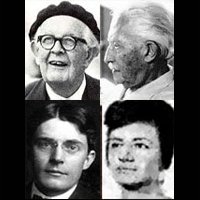 Famous Parenting Experts and Their Parenting Styles Theories: Humanism vs. Behaviorism. |
Parenting Experts Related to HUMANISTIC Parenting Styles (Founders, Refiners, Supporters or 'Coiners')
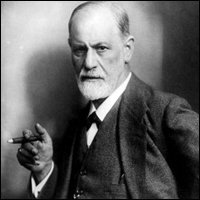 Sigmund Freud the Controversial Pioneer of Psychology: The Famous Psychosexual Stages of Child Development. |
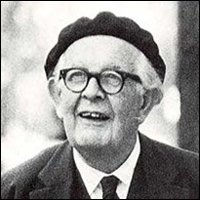 Jean Piaget Biography, Theories and Books: The Earliest Torch Bearer of Humanism. |
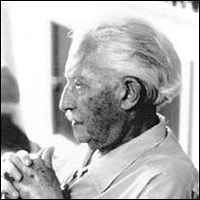 Erik Erikson Biography and Theories: The 8 Developmental Stages, Identity Crisis and Ego Identity. |
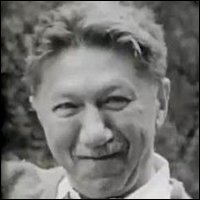 Abraham Maslow Biography: The Father of Humanistic Psychology and Self Actualization Theory. |
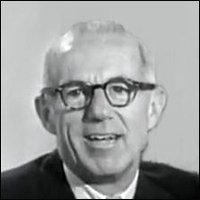 Dr. Benjamin Spock Biography, Theories and Books: The Controversial Forefather of Intuitive Parenting. |
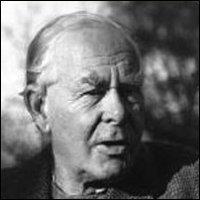 A Biography of John Bowlby: The Father of Attachment Theory. |
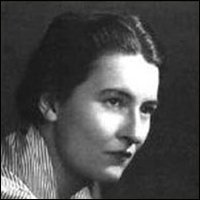 An Intriguing Mary Ainsworth Biography: The Refiner of Attachment Theory. |
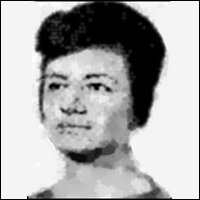 Diana Baumrind Spot-on: Biography, 3 Parenting Styles and Criticism (Spanking). |
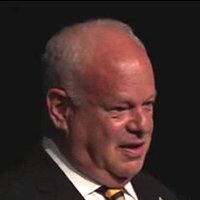 Martin Seligman: The Critic of Traditional Psychology and Father of Positive Psychology. |
 Alfie Kohn Biography, Theories and Books: The Father of Unconditional Parenting. |
 Deep Insights into the Essence of Dr Sears' Attachment Parenting - Along with a Fascinating Historical View on the Slow Rising Consciousness of Attachment Parenting. |
Parenting Experts Related to BEHAVIORIST Parenting Styles (Founders, Refiners, Supporters or 'Coiners')
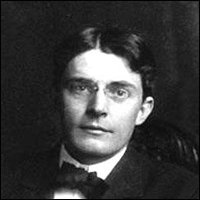 John B Watson Biography, Theories and Books: The Father of Behaviorism. |
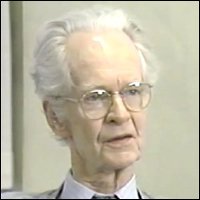 B. F. Skinner Biography, Theories and Books: Father of Radical Behavorism. |
 Amy Chua Biography and Theories: Tiger Mother's 9 Parenting Principles. |
Back to the top of this page about Carl Rogers Biography, Theories and Books: The Founder of Humanistic Psychology
Go to the Positive Parenting Ally Homepage







